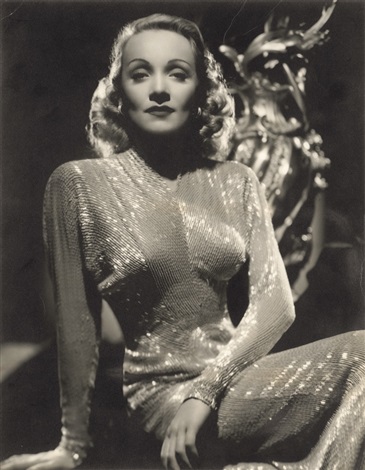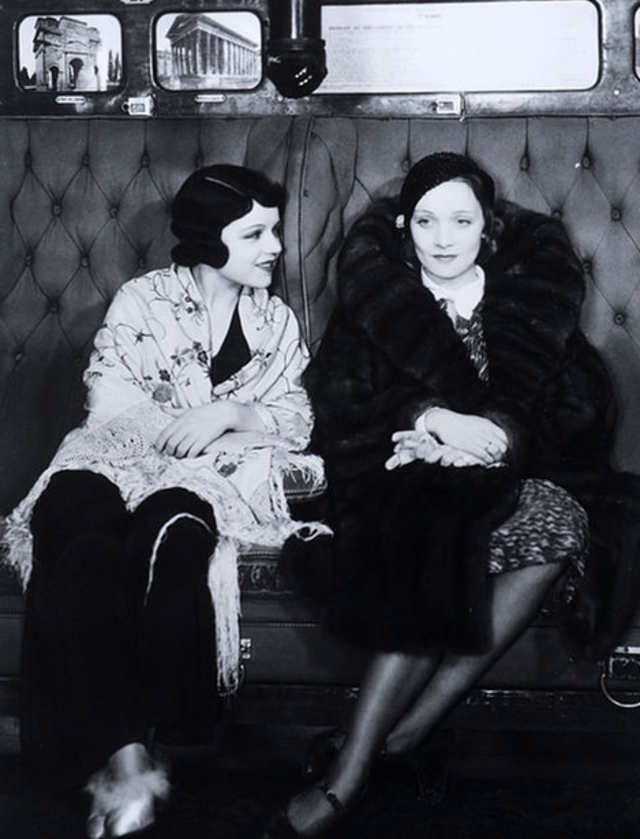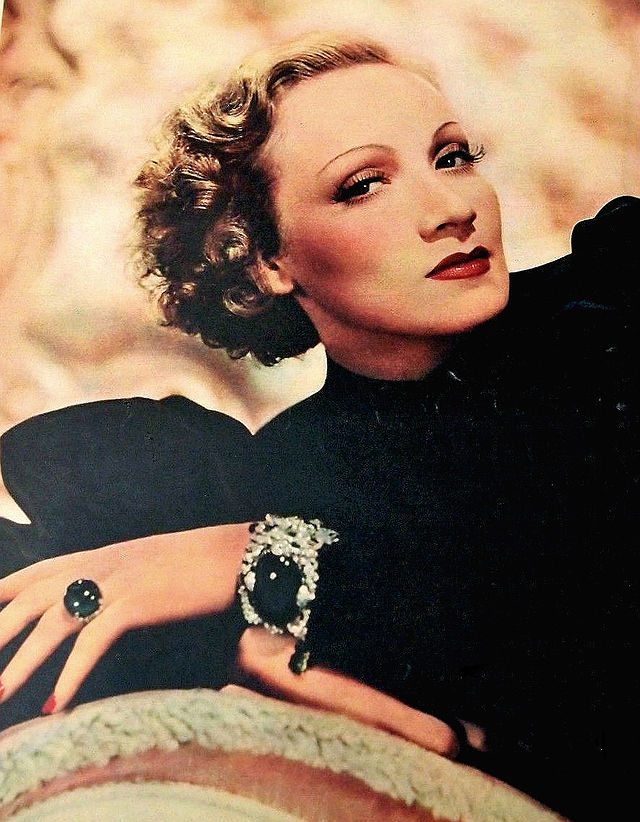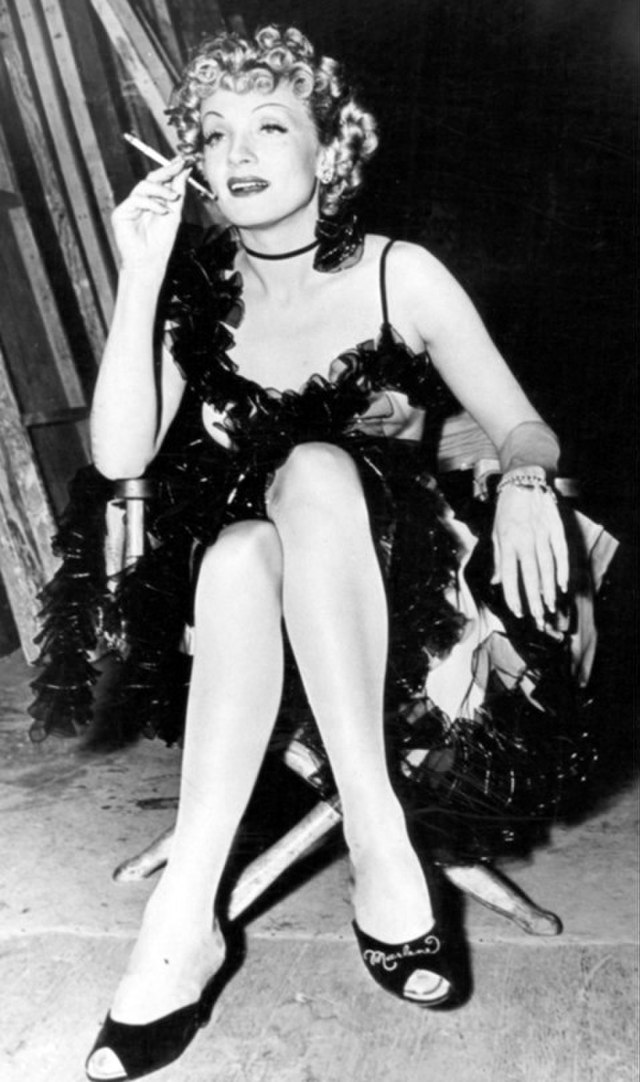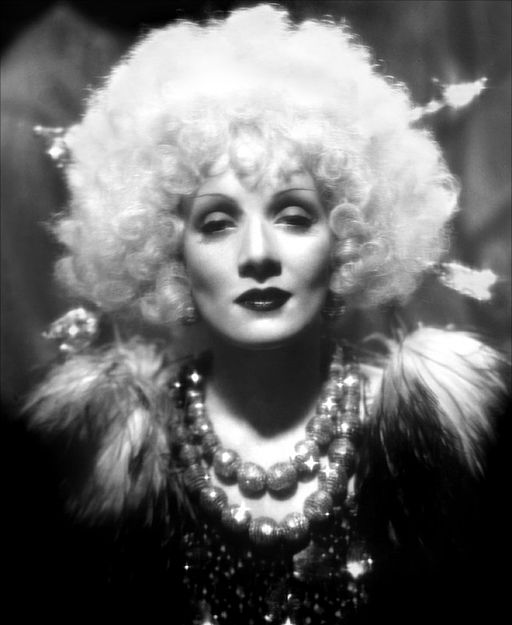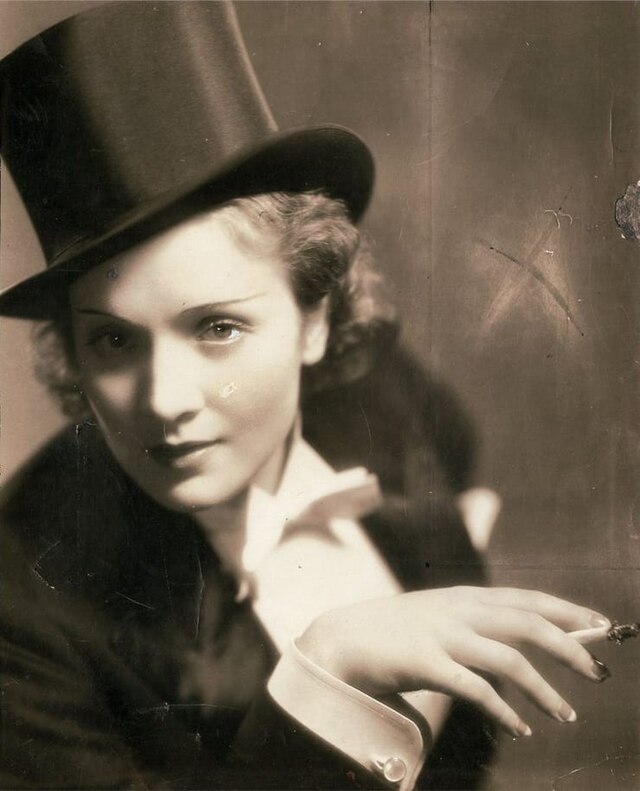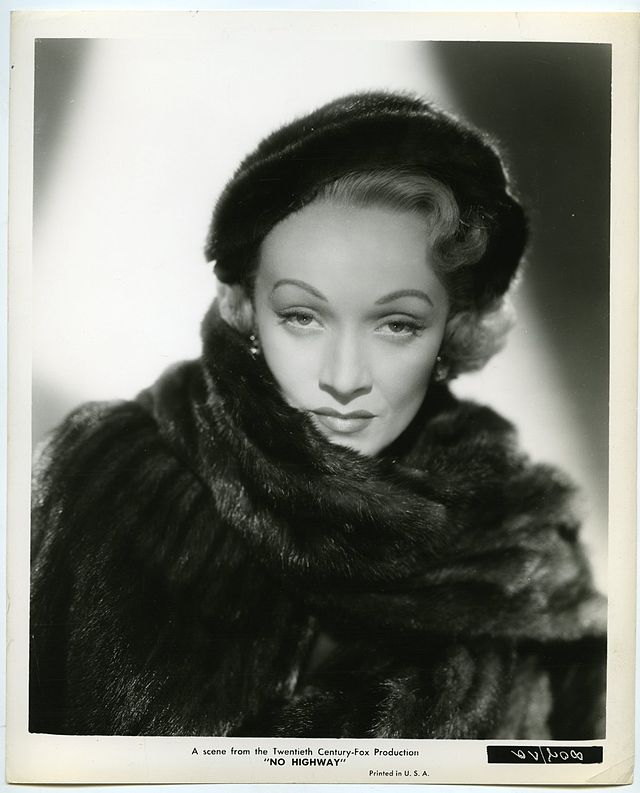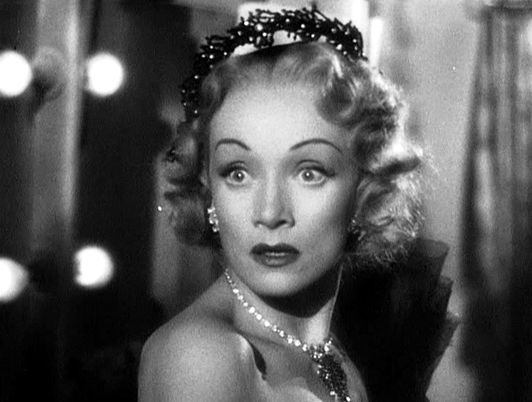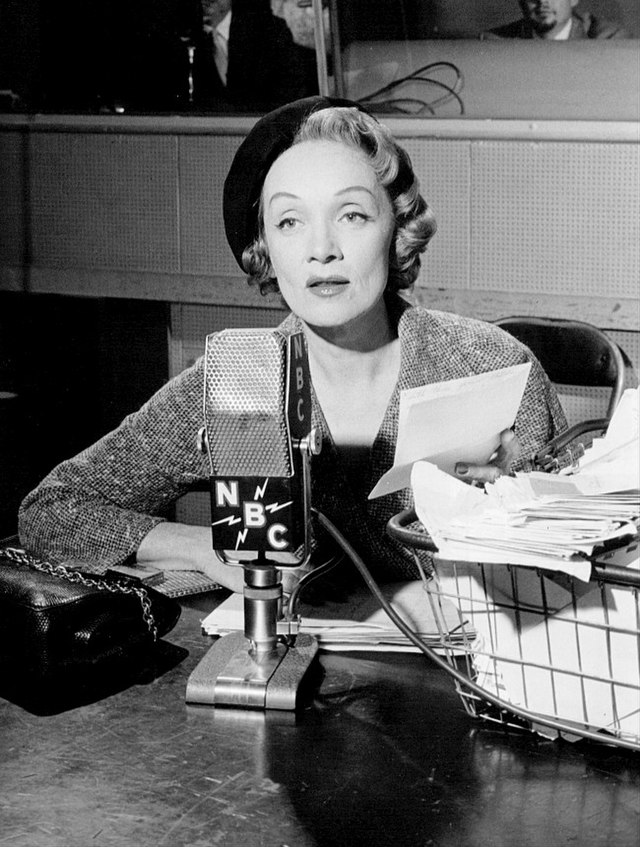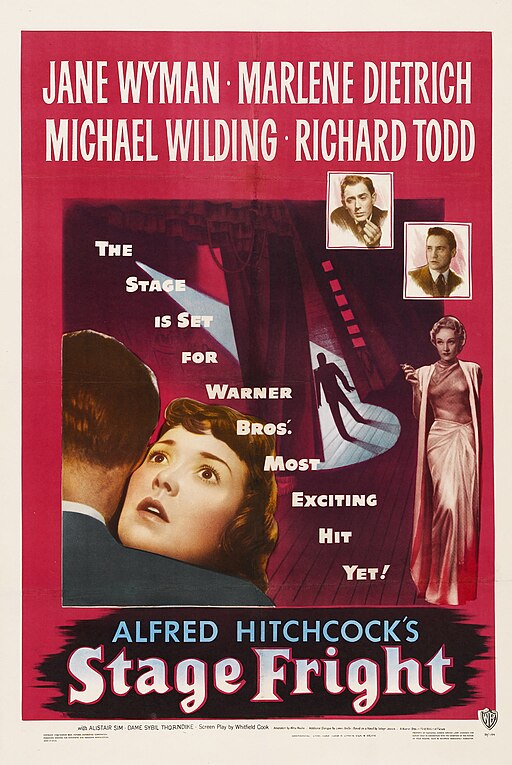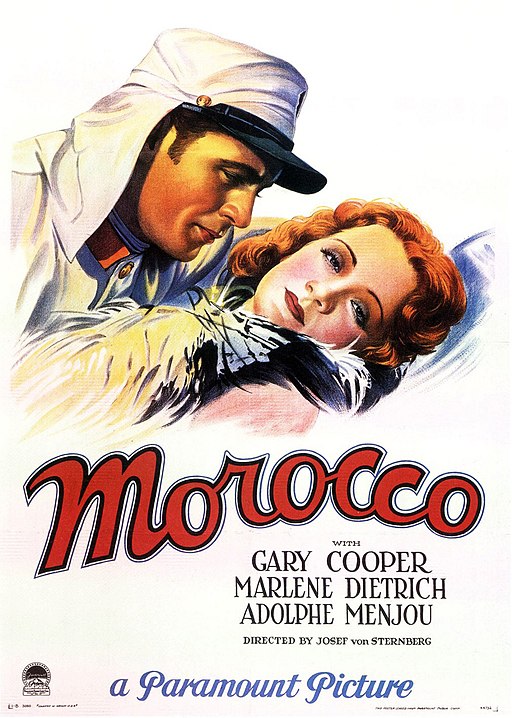Marlene Dietrich
back| Full Name | Marie Magdalene Dietrich |
| Stage Name | Marlene Dietrich |
| Born | December 27, 1901 |
| Birthplace | Schöneberg, Berlin, Germany |
| Died | May 6, 1992 |
| Buried | Friedhof III der Jerusalems- und Neuen Kirchengemeinde, Berlin, Germany |
| Married to | Rudolf Sieber (married in 1923, remained married until his death in 1976, but they lived separately for most of their marriage) |
| Children | Maria Riva |
| Notable films | The Blue Angel (1930) - Morocco (1930) - Shanghai Express (1932) - A Foreign Affair (1948) - Witness for the Prosecution (1957) - Judgment at Nuremberg (1961) |
Marlene Dietrich
The Blonde Venus
Marlene Dietrich was an iconic actress and singer known for her sultry voice, androgynous style, and captivating screen presence. She rose to international fame with her role in The Blue Angel (1930) and moved to Hollywood, starring in films like Morocco (1930) and Shanghai Express (1932).
Post-war, she transitioned to a successful cabaret career. Her notable later films include Witness for the Prosecution (1957) and Judgment at Nuremberg (1961). Dietrich passed away on May 6, 1992, in Paris, leaving a legacy as one of cinema's most enduring and influential figures.
Related
Marlene Dietrich
Biography, Movies and Career Ovreview
Marie Magdalene Dietrich, known as Marlene Dietrich, was born on December 27, 1901, in Schöneberg, Berlin, Germany. She was the daughter of Louis Erich Otto Dietrich, a police lieutenant, and Wilhelmina Elisabeth Josephine (née Felsing). Dietrich had a sister, Elisabeth, who was a year older.
Dietrich showed an early interest in music and performance. She studied the violin as a teenager but an injury to her wrist ended her dream of becoming a concert violinist. Instead, she turned her attention to acting, attending Max Reinhardt's drama school in Berlin.
Dietrich's film career began in the 1920s with silent films and small roles in German productions. Her big break came in 1930 when she starred in "The Blue Angel" (Der blaue Engel) directed by Josef von Sternberg. Her role as the seductive cabaret singer Lola Lola catapulted her to international fame. Following the success of "The Blue Angel," Dietrich moved to Hollywood, where she continued to work with von Sternberg on a series of films, including "Morocco" (1930), "Dishonored" (1931), "Shanghai Express" (1932), and "The Scarlet Empress" (1934).
Dietrich became known for her glamorous and androgynous image, often wearing men's suits and challenging traditional gender roles. Her strong, confident screen presence and distinctive voice made her a popular and influential star of the era.
During World War II, Dietrich became an American citizen and was a vocal anti-Nazi. She entertained Allied troops on the front lines and was awarded the Medal of Freedom by the United States and the Légion d'Honneur by France for her war efforts.
After the war, Dietrich's film career slowed, but she continued to perform as a singer, becoming a successful cabaret artist. She collaborated with renowned composer Burt Bacharach and performed around the world.
Dietrich's later film roles included notable performances in "Witness for the Prosecution" (1957) and "Judgment at Nuremberg" (1961). She retired from show business in the 1970s and lived a reclusive life in Paris, France.
Marlene Dietrich passed away on May 6, 1992, at the age of 90. She was buried in Berlin at the Friedhof III der Jerusalems- und Neuen Kirchengemeinde, close to her birthplace.
Dietrich's legacy endures as an icon of classic Hollywood cinema, a trailblazer for gender nonconformity, and a symbol of resilience and strength. Her influence on film, fashion, and popular culture continues to be celebrated and studied.
Marlene Dietrich sings "Sag mir wo die Blumen sind":
Key Aspects of Marlene Dietrich's Acting Style:
- Expressive Eyes and Glances:
Dietrich's eyes were one of her most powerful tools. She often used them to convey complex emotions with just a glance, creating an aura of mystery and depth. Her ability to communicate through her eyes added an enigmatic quality to her performances, drawing audiences into her characters' inner worlds.
- Voice and Dialogue Delivery:
Her voice was another hallmark of her style—deep, smoky, and resonant. Dietrich's dialogue delivery was measured and deliberate, often imbued with a languid sensuality. She had a talent for infusing even the simplest lines with layers of meaning and emotion, making her performances memorable and impactful.
- Physical Presence and Posture:
Dietrich's physicality on screen was marked by grace and poise. She often used her body language to assert control and dominance in her roles, whether through a confident stride, a languid pose, or a seductive gesture. Her movements were deliberate and calculated, enhancing her characters' allure and authority.
- Androgynous Appeal:
Dietrich was known for her androgynous appeal, often wearing men's clothing and adopting traditionally masculine traits in her performances. This defiance of gender norms was revolutionary for her time and contributed to her status as a style icon. Her androgyny added a layer of complexity to her characters, making them both intriguing and relatable.
- Subtlety and Nuance:
Unlike many of her contemporaries who favored more overtly dramatic styles, Dietrich excelled in subtlety. She could convey profound emotions with minimalistic expressions and gestures, allowing audiences to read between the lines and connect with her characters on a deeper level.
- Seductive Charm:
Dietrich's on-screen persona often radiated a magnetic, seductive charm. She had a way of making every scene she was in more captivating, using her allure to draw viewers in. Her seductive presence was not just about physical beauty but also about a sense of mystery and unattainability.
- Collaboration with Directors:
Dietrich's acting style was significantly influenced by her collaboration with directors, particularly Josef von Sternberg. Sternberg's meticulous attention to lighting, costume, and set design complemented Dietrich's performance style, creating a perfect synergy that enhanced her screen presence. Their films together are noted for their atmospheric quality and the way they highlighted Dietrich's enigmatic allure.
- Transformation and Versatility:
Throughout her career, Dietrich demonstrated remarkable versatility, transforming herself to fit a wide range of roles—from the cabaret singer Lola Lola in "The Blue Angel" to the stoic widow in "Judgment at Nuremberg." Despite her strong personal style, she was able to adapt and evolve, showcasing different facets of her talent.
Memorable Quotes from Marlene Dietrich:
"Courage and grace are a formidable mixture. The only place to see it is in the bullring."
"A man would prefer to come home to an unmade bed and a happy woman than to a neatly made bed and an angry woman."
"Once a woman has forgiven her man, she must not reheat his sins for breakfast."
"I dress for the image. Not for myself, not for the public, not for fashion, not for men."
"In America, sex is an obsession; in other parts of the world, it’s a fact."
"The average man is more interested in a woman who is interested in him than he is in a woman with beautiful legs."
"Darling, the legs aren't so beautiful, I just know what to do with them."
"It's the friends you can call up at 4 a.m. that matter."
"I am at heart a gentleman."
"I am not a myth."
"During my years in Hollywood, I never regretted leaving Germany for a moment."
"I am not an actress. I can only play me—on and off the screen."
"I have a face that is a gift. I have people in the wings who work on it. It was given to me as a gift. And I'm simply living off the dividends of that gift."
"There is a gigantic difference between earning a great deal of money and being rich."
"When you're dead, you're dead. That's it."
What Others said about Her:
Ernest Hemingway (Writer):
"If she had nothing more than her voice, she could break your heart with it. But she also has that beautiful body and the timeless loveliness of her face."
Billy Wilder (Director):
"She was one of the greatest professionals in the history of the movies. She never quit until she had it right. If it took until midnight, she was there. She was a great woman."
Orson Welles (Director and Actor):
"She was much more than a star. She was a great actress with a real range. She could play anything."
Jean Cocteau (Poet, Playwright, Filmmaker):
"Dietrich is the strange alchemy of woman and myth, a great lady of the cinema and a great lady of legend."
Noël Coward (Playwright, Composer):
"She has a quality, an ineffable something that transcends mere acting talent and turns her into a legend. She is the epitome of glamor."
Alfred Hitchcock (Director):
"Marlene Dietrich is, without a doubt, the most fascinating woman I ever worked with. Her presence is mesmerizing, and she has an extraordinary sense of cinematic storytelling."
Rainer Werner Fassbinder (Director):
"She knew everything about the art of acting, and her performances were always infused with intelligence and sensitivity. Dietrich was the ultimate star."
David Bowie (Musician and Actor):
"Marlene Dietrich was an icon of individuality. She defied the conventions of her time and lived life on her own terms."
George Cukor (Director):
"Marlene had an aura about her that was unique. She understood the camera and lighting like no other. She was a true artist."
Greta Garbo (Actress):
"Marlene Dietrich was a trailblazer. She set a standard for elegance and independence in Hollywood that many aspired to but few achieved."
John Wayne (Actor):
"Working with Marlene was an experience. She had a way of commanding the screen and making every scene memorable. She was one of a kind."
Major Awards and Honors
Academy Awards (Oscars)
Nominated:
1931: Best Actress in a Leading Role for Morocco.
Golden Globe Awards
Won:
1958: Henrietta Award for World Film Favorite – Female.
BAFTA Awards
Nominated:
1959: Best Foreign Actress for Witness for the Prosecution.
Tony Awards
Won:
1968: Special Tony Award for her performance in a one-woman show.
Other Notable Honors and Recognitions
Medal of Freedom
1947: Awarded the Medal of Freedom by the United States government for her support during World War II, including her work with the USO and her anti-Nazi stance.
Légion d'Honneur
1950: Awarded the Chevalier (Knight) of the Légion d'Honneur by the French government for her contributions to the arts and her wartime efforts.
Berlin Film Festival
1992: Posthumously awarded a special tribute at the Berlin International Film Festival in recognition of her contribution to cinema.
Golden Bear Award
1992: Posthumously honored with the Honorary Golden Bear at the Berlin International Film Festival for her lifetime achievements.
Deutscher Filmpreis (German Film Award)
1960: Awarded the Honorary Award for Outstanding Contribution to German Cinema.
Additional Honors
Hollywood Walk of Fame
Dietrich has a star on the Hollywood Walk of Fame, located at 6400 Hollywood Blvd, recognizing her contributions to the motion picture industry.
French Order of Arts and Letters
Dietrich was made a Commandeur (Commander) in the Ordre des Arts et des Lettres, acknowledging her significant contributions to the arts.
Honorary Citizen of Berlin
In 2002, ten years after her death, Marlene Dietrich was posthumously made an honorary citizen of Berlin.
Legacy and Tributes
Marlene Dietrich's contributions to cinema, her distinctive style, and her brave stance during World War II have made her a celebrated figure worldwide. Her legacy continues to be honored through various retrospectives, documentaries, and tributes in film festivals and museums.
List of Movies featuring Marlene Dietrich:
- The Little Napoleon (1923)
A silent drama where Dietrich played Kathrin, the love interest of a man aspiring to become a great leader.
- Tragedy of Love (1923)
A romance film where she had a minor role.
- The Woman One Longs For (1929)
Dietrich stars as Stascha, a mysterious woman who captivates a young man.
- The Ship of Lost Souls (1929)
Set on a derelict ship, Dietrich plays Marie, entangled in a romantic drama.
- The Blue Angel (1930)
Dietrich's breakthrough role as Lola Lola, a cabaret singer who causes the downfall of a respectable professor.
- Morocco (1930)
Dietrich plays Amy Jolly, a cabaret singer who falls for a legionnaire (Gary Cooper).
- Dishonored (1931)
A spy drama where Dietrich portrays X-27, an Austrian spy during WWI.
- Shanghai Express (1932)
Dietrich as Shanghai Lily, a courtesan caught up in political intrigue aboard a train in China.
- Blonde Venus (1932)
She plays Helen Faraday, a cabaret singer who turns to desperate measures to support her ill husband.
- The Scarlet Empress (1934)
Dietrich as Catherine the Great, depicting her rise to power in Russia.
- The Devil is a Woman (1935)
A drama where Dietrich is Concha Perez, a woman who ensnares men and causes chaos.
- Desire (1936)
A romantic comedy with Dietrich as Madeleine de Beaupré, a jewel thief who falls for a charming American (Gary Cooper).
- Knight Without Armour (1937)
Dietrich plays Alexandra, a Russian countess involved in a love affair during the Russian Revolution.
- Angel (1937)
A romantic drama where Dietrich is Maria Barker, torn between her husband and a former lover.
- Destry Rides Again (1939)
A Western comedy with Dietrich as Frenchy, a saloon singer who aids a new deputy (James Stewart).
- Seven Sinners (1940)
Dietrich plays Bijou Blanche, a singer who attracts trouble and love in the South Seas.
- The Flame of New Orleans (1941)
A romantic comedy with Dietrich as Countess Claire Ledoux, entangled in love and deception.
- The Lady is Willing (1942)
A comedy where Dietrich is Liza Madden, a Broadway star who adopts a baby.
- Pittsburgh (1942)
Dietrich stars as Josie Winters, involved in a love triangle with two coal miners (John Wayne and Randolph Scott).
- The Spoilers (1942)
A Western drama where Dietrich is Cherry Malotte, caught in a conflict over gold claims.
- Kismet (1944)
Dietrich plays Jamilla, a glamorous role in this musical set in the Arabian Nights era.
- Martin Roumagnac (1946)
A French film where she plays Blanche Ferrand, involved in a tragic love affair.
- Golden Earrings (1947)
Dietrich as Lydia, a gypsy who helps a British officer (Ray Milland) during WWII.
- A Foreign Affair (1948)
A comedy-drama where Dietrich plays Erika von Schluetow, a singer in post-war Berlin involved with an American officer.
- The Monte Carlo Story (1949)
A romantic comedy with Dietrich as Maria de Crevecoeur, entangled in a gambling scheme.
- Stage Fright (1950)
A thriller directed by Alfred Hitchcock, where Dietrich plays Charlotte Inwood, a famous actress embroiled in a murder case.
- No Highway in the Sky (1951)
Dietrich as Monica Teasdale, involved in an aviation disaster investigation.
- Rancho Notorious (1952)
A Western where Dietrich is Altar Keane, a saloon keeper aiding a cowboy in search of justice.
- Witness for the Prosecution (1957)
A courtroom drama with Dietrich as Christine Vole, a key witness in a murder trial.
- Touch of Evil (1958)
Dietrich has a cameo as Tanya, a fortune teller in this film noir directed by Orson Welles.
- Judgment at Nuremberg (1961)
Dietrich as Mrs. Bertholt, the widow of a Nazi general, in this post-WWII tribunal drama.
- The Blue Angel (1959)
Dietrich reprised her role in a remake of her breakthrough film.
- Just a Gigolo (1978)
Dietrich's final film appearance as Baroness von Semering, in a story about post-WWI Berlin.

